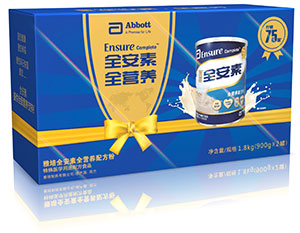The most important traditional holiday in China, Lunar New Year (also called the Spring Festival) is prime gift-giving season. In fact, the country's official Xinhua News Agency reported that last year’s Chinese New Year retail sales totaled more than US $100 billion, according to the Ministry of Commerce. But the celebration's important to cultures across Asia and in Asian communities around the world, as family reunion dinners (with foods symbolizing luck and health) are held on the New Year's eve and presents are shared the following day.
"Gift giving, first of all, is an expression of appreciation to the other," explained Dr. Li-cheng (Richard) Gu, a professor at Northwestern University's Department of Asian Languages and Cultures. Whether one gives traditional red envelopes with money inside, or flowers or chocolates, he said the meaning's the same—"to wish the gift will bring blessings to this person."
Lunar New Year presents designed to help loved ones maintain or improve their health also are popular. This is increasingly common, said Gu, when younger relatives are purchasing gifts for older ones.
"For example, a son-in-law might bring (to his wife's parents) something to measure your temperature or blood pressure, or a humidifier or air purifier," said Gu, who teaches Chinese language and literature and serves as director of the Northwestern Summer in Beijing Program. "All kinds of vitamins or ginseng, because it's supposed to make you live a long life."
According to Abbott-funded research in China, as many as 70 percent of caregivers or family will purchase a nutritional supplement as a gift, doing so almost four times each year. And the survey found more than 60 percent of money spent on gifts for hospitalized people goes toward nutritional supplements, with 85 percent of adults who've experienced a health event—which can be anything from high blood pressure to more serious challenges—receiving such a gift.
In China, for example, the aging population continues to swell—and there are fewer children to support this rapidly growing group. Abbott's research showed that more than ever before, adults 50 and over in China who are "health engaged"—and make proactive changes to their lifestyles, such as adding light exercise—are especially interested in nutritional products like Ensure. That's one reason the giving of supplements is more prevalent, as consumers try to help their parents and older relatives maintain their health.
It's also why Abbott recently introduced Ensure Complete, a specialized nutrition product to support regaining health and ongoing health maintenance in China. Knowing the popularity of Lunar New Year gift items that help people live well, Abbott is stocking shelves at more than 11,000 retail outlets and pharmacies with specially packaged Ensure gift sets. The royal blue and gold boxes contain two cans of Ensure Complete powder, nestled in gold fabric for a festive touch.

"As we've worked on the introduction of Ensure, we've worked to really understand the consumer in China and the health process," said Matt Harris, division vice president and General Manager of Abbott Adult Nutrition in China. "Nutrition is really a part of the Chinese culture—as is gifting, especially when there is a minor or major health issue. The gift box represents the opportunity to give the gift of nutrition to loved ones."
Os links que o direcionam para fora dos sites da Abbott não estão sob o seu controlo, e a Abbott não é responsável pelo conteúdo de qualquer um desses sites ou quaisquer outros links a partir desses sites. A Abbott fornece-lhe estes links apenas por comodidade e a inclusão de qualquer link não implica a aprovação pela Abbott do site acedido por esse link.
O site que solicitou também não pode ser otimizado para o tamanho do seu ecrã.